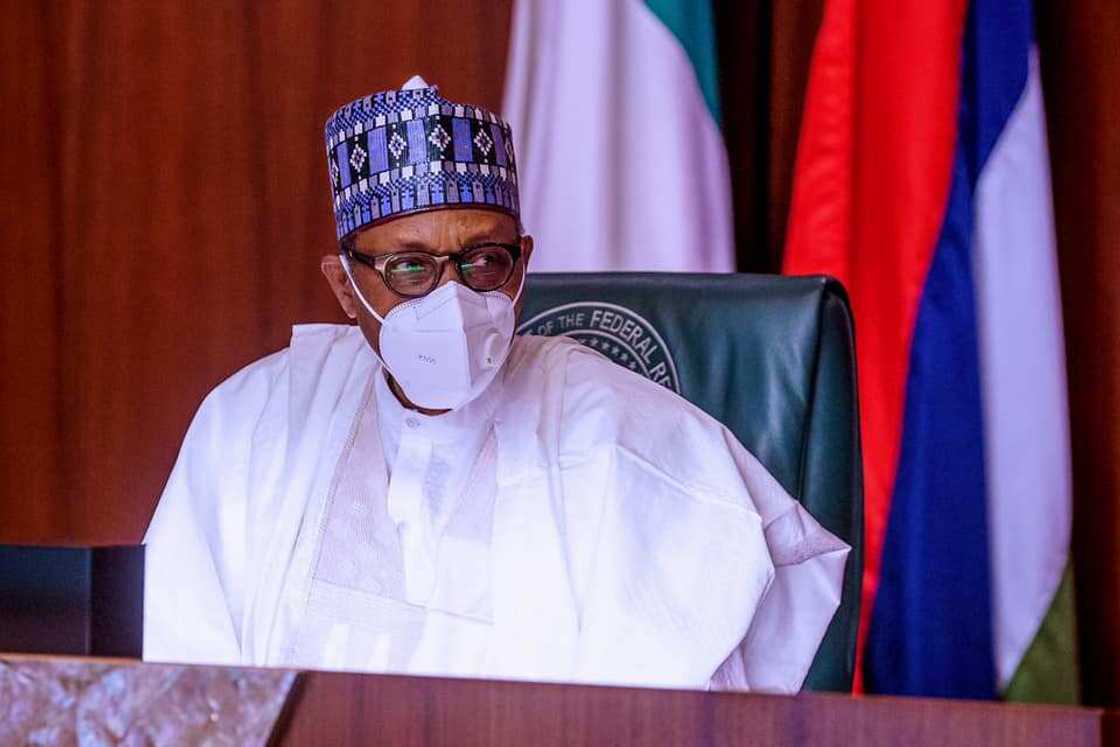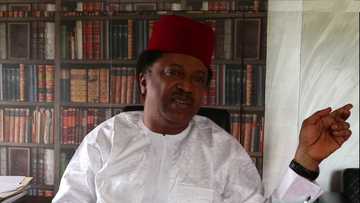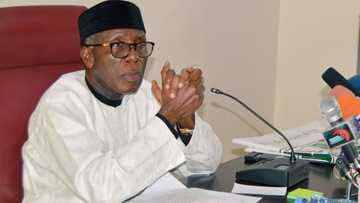Infra-Co: Buhari okays establishment of trillion naira firm
- The Buhari-led government has proven its interest to push Nigeria's infrastructural growth to greater heights
- President Muhammadu Buhari has approved the establishment of Infra-Co, a firm own by both the government and persons in the private sector
- Infra-Co has secured a seed capital of N1 trillion from the Central Bank of Nigeria (CBN)
PAY ATTENTION: Join Legit.ng Telegram channel! Never miss important updates!
Using an initial seed capital of N1 trillion, President Muhammadu Buhari on Friday, February 12, approved the take-off of a public/private infrastructure company called Infra-Co.
Business experts have projected that Infra-Co will hit N15 trillion in capital and assets very soon, PM News reports.
The firm, a brainchild of concept design from the Central Bank of Nigeria (CBN) and the National Economic Council (NEC) is one of the infrastructure finance entities in Africa conceived to grow the country's infrastructure.

Source: Facebook
With its board of directors chaired by Godwin Emefiele, Infra-Co's first fund will come from the apex bank, the Nigerian Sovereign Investment Authority (NSIA), and the Africa Finance Corporation (AFC).
PAY ATTENTION: Get the Latest Nigerian News Anywhere 24/7. Spend less on the Internet!
The company will provide finance for public asset development, rehabilitation, reconstruction, and the is expected to also fund other projects likes road, rail, power, among others.
Meanwhile, the Nigeria Development Update (NDU) of the World Bank, the country's economic recession had been predicted to last for the next three years, that was till 2023.
The global financial body has projected that within this period, almost all Nigerian citizens would witness a reversal of decades of economic growth and the country could enter its deepest recession since the 1980s.
Apart from warning that the absence of measures to mitigate the impact of the crisis can push the number of poor persons by about 15 to 20 million by 2022, the international institution made it known that "food insecurity has increased substantially and economic precarity is on the rise because unemployed workers have migrated to the low-productivity agricultural sector."
In his recent submission, Shubham Chaudhuri, the bank's country head for Nigeria, said that the nation is at a very crucial point, but that this situation can be averted if the federal government sustains its current economic reforms and implement the right policies.
Onyirioha Nnamdi is a graduate of Literature and English Language at the University of Lagos. He is a Politics/Current Affairs Editor who writes on news and political topics for Legit.ng. He brings into his reporting a wealth of experience in creative and analytical writing. Nnamdi has a major interest in local and global politics.
Source: Legit.ng



